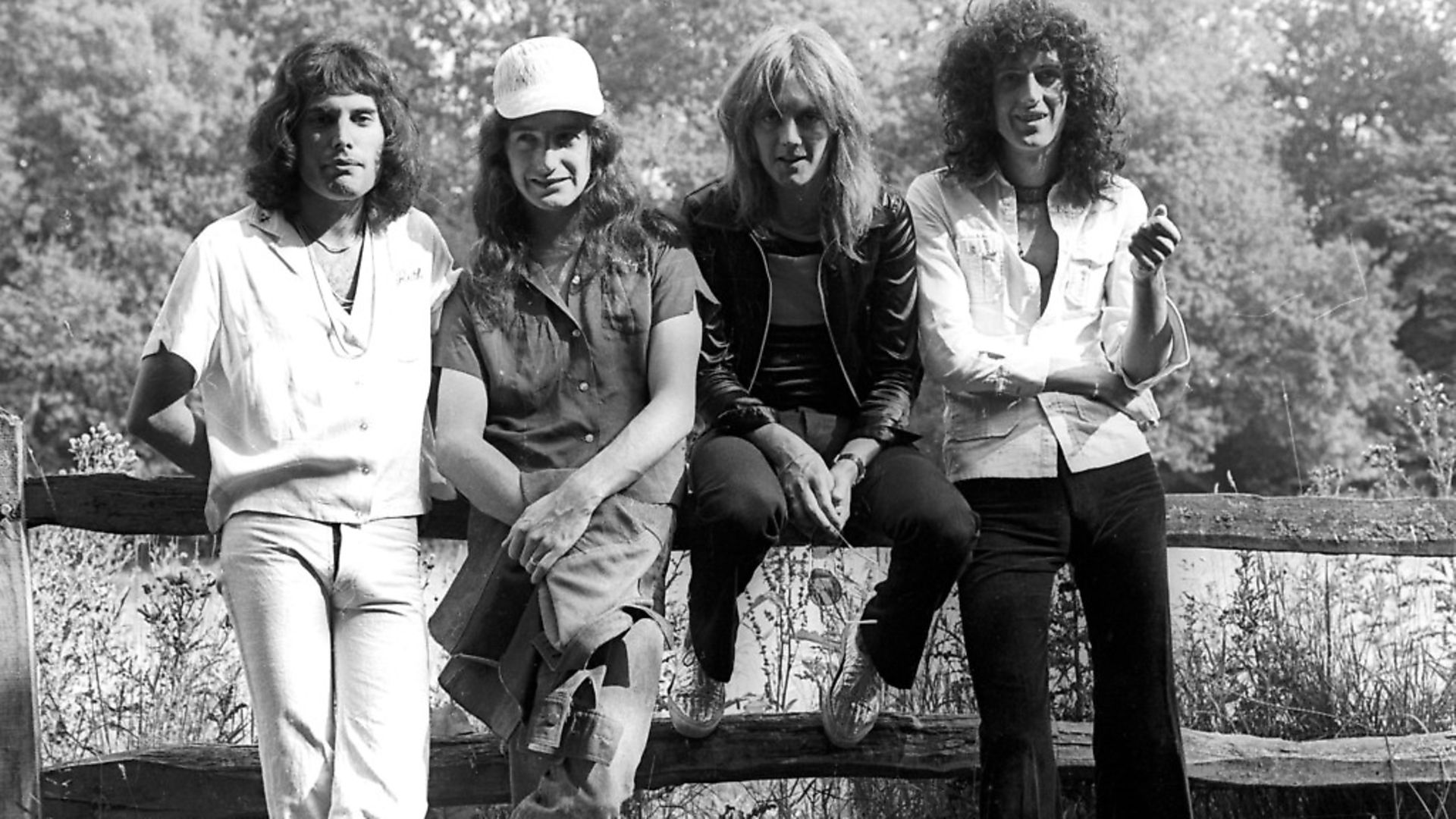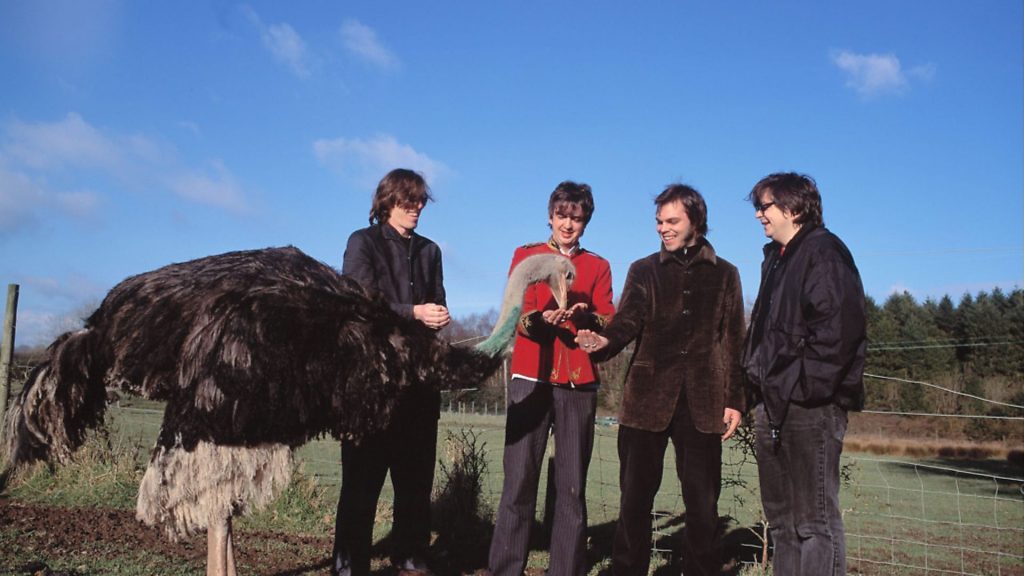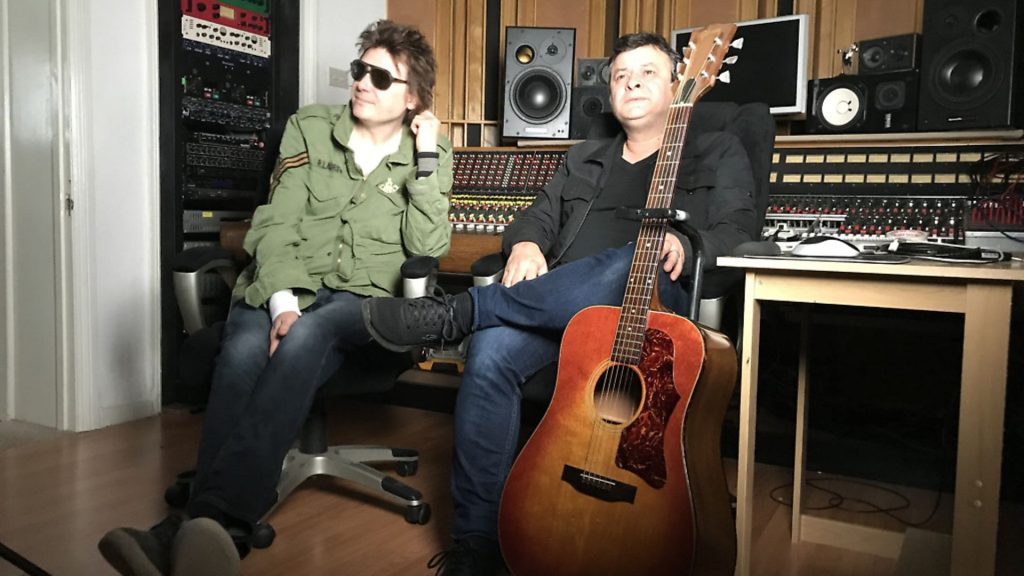
BILL BORROWS on the remarkable story of Rockfield, the rural recording studio that has played a pivotal role in musical history.

And then Elvis turned up… Not actually in person in Monmouth, South Wales (although as you read on that will seem a much less fanciful notion than you might be prepared to accept at this stage) but just to change the world in 1955.
‘If it wasn’t for Elvis Presley we wouldn’t be talking now,’ says 80-year-old Kingsley Ward. ‘If he hadn’t turned up looking like he did and playing like he did, closely followed by Little Richard and Jerry Lee Lewis… Bloody hell. I was 15 and when he walked out it was like something from another planet. I. Could. Not. Believe. It. I’d never even seen an electric guitar before.’ The die was cast.
The ripples from that monumental stone cast into the lake continue to wash up on the shore but back in 1950s South Wales one of them would serve to convince two young men (Kingsley and his brother Charles) that their futures lay away from shovelling s**t on a farm and in another area completely – in short, they decided to ‘get into rock n roll’.
There was no handbook but buying a guitar seemed to be an integral part of the process so that is what they did. By the start of the following decade, at the same time Elvis was leaving the army and four lads from Liverpool had just started playing clubs in Hamburg, they had a group and a couple of songs.

The next step was to get a deal and, driven by ambition and entrepreneurial chutzpah, they borrowed a tape recorder, made a demo and drove to see EMI in London.
After a diversion via a pressing plant in Middlesex (‘We’d taken the address off the back of one of the records and just assumed that was where they must be based’), they walked through the front door at EMI House, asked to meet producer George Martin, were told that he was unavailable and to come back the following Tuesday.
‘George was a lovely chap. He didn’t mind that we’d brought a tape recorder with us and loved our songs. He said to come back in six months and he would see if he could help us.’
That second meeting never happened and the chances are that you have never heard of the Charles Kingsley Combo (or The Thunderbolts – the name they chose when they got a record deal in America) but this is not yet another tale of rock ‘n roll ‘so near but yet so far’, from the We Coulda Been Contenders catalogue.
Quite the reverse. Indeed, there are few people who have played a more integral part in the history of rock ‘n roll over the last 60 years than Kingsley and Charles Ward and they made it all happen on the farm where they grew up.
You may know it as Rockfield Studios: the place where Bohemian Rhapsody, Wonderwall and Yellow and, at one point in 1997, seven of the top 10 albums were recorded.
Either fate or a combination of George Martin’s diary commitments and the impatience of the Ward brothers drove them into the arms of legendary producer and sound engineer Joe Meek in 1961.
‘A friend of mine suggested we talk to him so we took him an acetate with another couple of songs on it,’ says Kingsley. ‘I was playing the organ on one track and it sounded a bit like Telstar [the instrumental written and produced by Meek for the Tornados which would become the first record by a British group to reach No.1 in the US when it was released the following year]. He nearly had a heart attack and signed us up on the spot because he didn’t want us taking that sound anywhere else.’
They stayed with Meek until 1965, learning the rudiments of production from one of the most influential sound engineers of all time and taking that knowledge back to Monmouth and the little studio they had built in the attic space at the farm.
Soon, so many local bands were queueing up to have their music recorded in the hope they would be able to chase down a deal with the major record labels that the brothers were able to build a second, bigger studio at the farm (‘The Granary’).
By accident, if you take Kingsley at face value, but more likely by design, they were now the owners of the one of the only professional recording studios outside London. News travelled fast. Dave Edmunds turned up from Cardiff.
‘He was such a good musician we had to up our game but that was good for us,’ says Kingsley. ‘We were called Future Sounds Limited then but Dave said, ‘I’ve just seen a sign to a village called Rockfield, why don’t call yourselves that’. It sounded just right and we’ve been called that ever since.’
In 1967 a band called Elephant’s Memory – later the Plastic Ono Elephant’s Memory Band – flew over but had nowhere to stay.
The brothers put them up at their mother’s house next to the farm and, just like that, the world’s first residential recording studio was born.
A year later they invested £5,000 in 8-track recorders like those being used by George Martin at Abbey Road and a third studio was added, ‘The Coach House’. ‘We’d caught up with the majors,’ he says now.
So, with little to choose in terms of technology, and an offer that included beautiful surroundings and tranquillity away from the chaos of urban life – perfectly in tune with the hippie zeitgeist – and privacy plus (in theory) a distance from the manifold temptations and distractions readily available elsewhere, Rockfield became the go to destination for labels who needed their artists to deliver.
The artists loved it too. ‘Just to go from Birmingham to Monmouth was an adventure,’ Ozzy Osbourne tells the makers of new BBC documentary Rockfield: The Studio on the Farm. He was there with Black Sabbath in 1970 to record their album Paranoid. ‘We’d never been in a studio, we’d never been on a farm or seen a cow in a field. It was brilliant… it allowed us the freedom to play it as loud as we liked, there were roof tiles rattling off.’
The freedom extended beyond time in the studio. ‘Lemmy came with Hawkwind,’ says Kingsley. ”Hello’, he said, ‘I’m Lemmy, where can I hide my stash?’ Two minutes later, [guitarist and founder] Dave Brock appeared. ‘Hi I’m Dave. Where’s Lemmy hidden his stash?’
I Hear You Knocking by Dave Edmunds was recorded at the studio and became a worldwide hit in 1972. The brothers added a landing strip in an adjacent field.
In 1975 David Cassidy, unarguably the biggest rock star in the world at the time, touched down at Heathrow to be greeted by thousands of screaming girls but was in Monmouth two and a half hours later riding round the yard on one of the Ward children’s ponies (‘The next day at school the teacher asked them why they weren’t in the day before and they said, ‘We were riding our ponies with David Cassidy’ and of course the teachers don’t believe them do they’).
And if the biggest names in the world were beating a path to the door, there was always time for acts on the way up. Queen had recorded Sheer Heart Attack at the studio in 1974 but had so little money that Kingsley had to lend them the train fare to get back to London. When they returned a year later to record A Night at the Opera it was on slightly different terms.
‘They were loaded by then,’ remembers their erstwhile benefactor. ‘They were still the same lovely guys but they had crew and a tour manager and a bit more time on their hands. At one point Brian [May] and Roger [Taylor] were playing frisbee in the yard and I was thinking, blimey they haven’t done much so I asked Brian what was going on? And he said, ‘Freddie’s in there writing something’ and pointed to the tack room where we kept the saddles for the kids’ horses. There was an old piano in there and he was just finishing off Bohemian Rhapsody… out of the window you could see the old weather vane and my brother thinks that he might have been looking at that when he wrote ‘Any way the wind blows’ but we don’t know for sure.’
And so, adding to its legacy every year, by the late 1970s the studio was known as the place where Bohemian Rhapsody was born. That would be enough of a historical footprint for anywhere else but it is merely a footnote in the history of Rockfield. The bands who have recorded there are listed by decade at the end of the documentary but even such a stellar roll call will never do the studio justice.
Seminal albums such as Kings of the Wild Frontier (Adam and the Ants), Reel to Real Cacophony (Simple Minds), The Stone Roses (The Stone Roses), What’s The Story (Morning Glory)? (Oasis), This Is My Truth Tell Me Yours (Manic Street Preachers) and Parachutes (Coldplay) may all have been made in Monmouth but the essence of the place is in the stories around the recordings and Liam Gallagher, Ozzy, a couple of Manics and Chris Martin all feature in the film to pay tribute.
We learn that Wonderwall was partly recorded with Noel Gallagher sitting on a wall next to ‘The Coach House’ as Bonehead drove him mad with a remote control car in the yard and that the air rifles had to be locked away; the inspiration for Yellow was the studio copy of the Yellow Pages and the chorus was written in the bath here; and that Iggy Pop once brought David Bowie holding a huge chunk of cheese and a can of Heineken along to a Simple Minds recording session.
What we don’t learn is the real sex, drugs and rock ‘n roll stuff, the kind of behaviour that had the local constabulary parked at the bottom of the drive taking the registration numbers of those coming and going.
The early morning arrest of the Stone Roses still covered in paint after trashing their former record company’s office is already in the public domain, as is the tragic death of Charlatans keyboard player Rob Collins in a car crash while the band were resident, but there are no fabulous indiscretions. That would, of course, be bad for business. What goes on tour etc…
‘We just let them get on with it,’ says Kingsley, a touch disingenuously. ‘We don’t pay them any attention. There are no plaques here, no gold or silver discs. We find that tacky. Whatever other studios do, we do the opposite.’
Would that include planning for the future? ‘You can never predict what’s going to happen in the future, we tend to reinvent ourselves every 10 years but as a general rule when guitar music is popular, so are we. The internet has done the music business in completely and nobody buys anything anymore so there’s no cashflow but we’ll be fine. We’ve diversified and we’ll just wait and see who turns up next.’
Rockfield: The Studio on the Farm is available on BBC iPlayer









